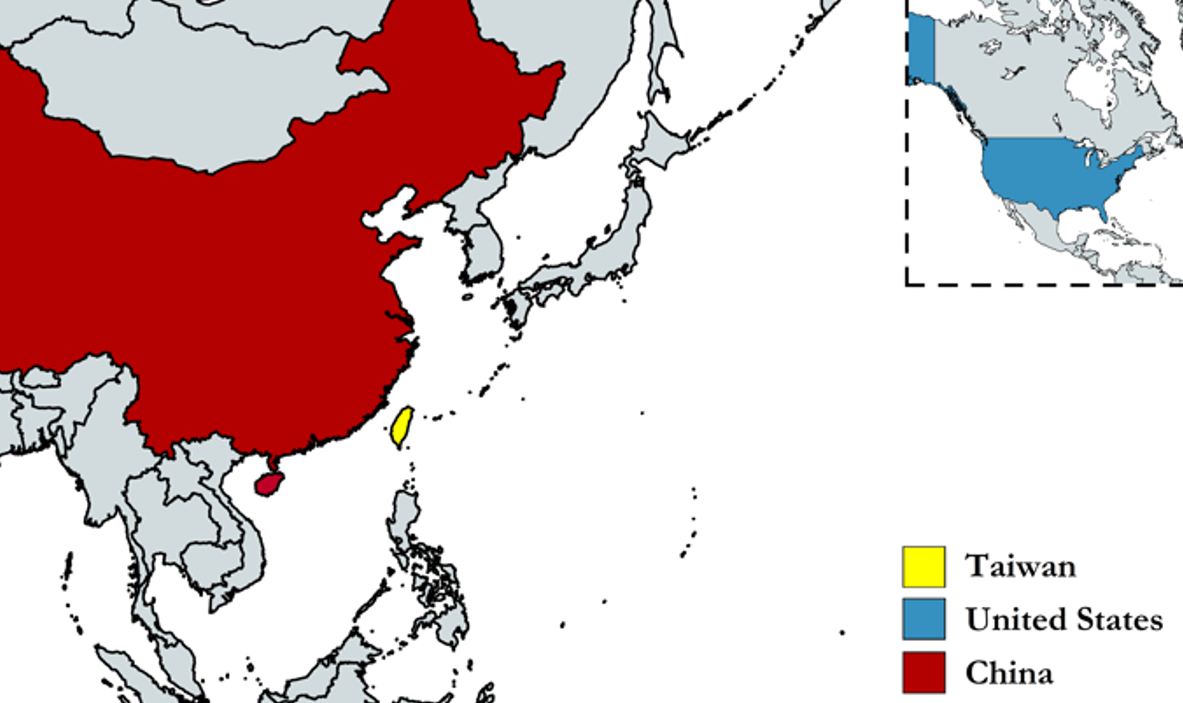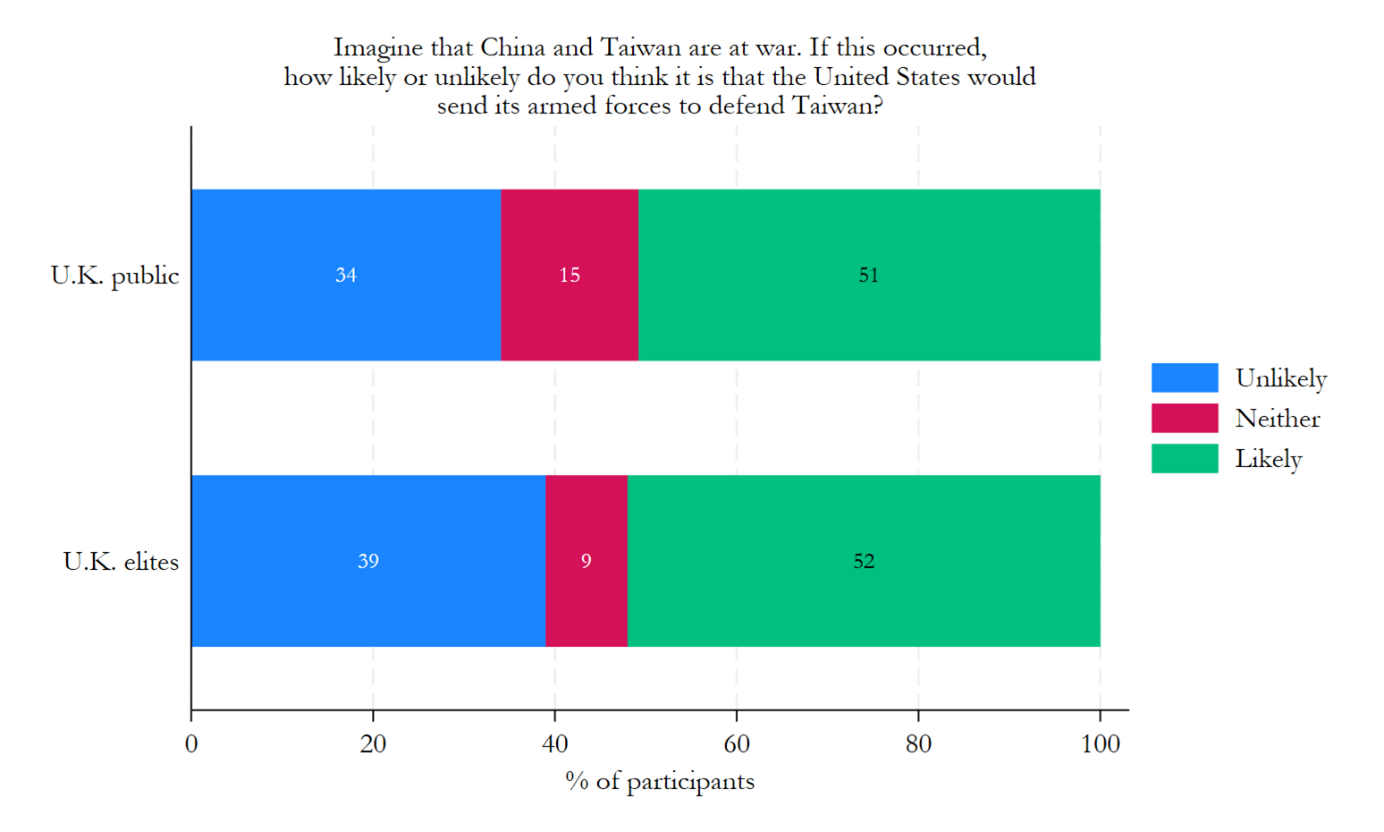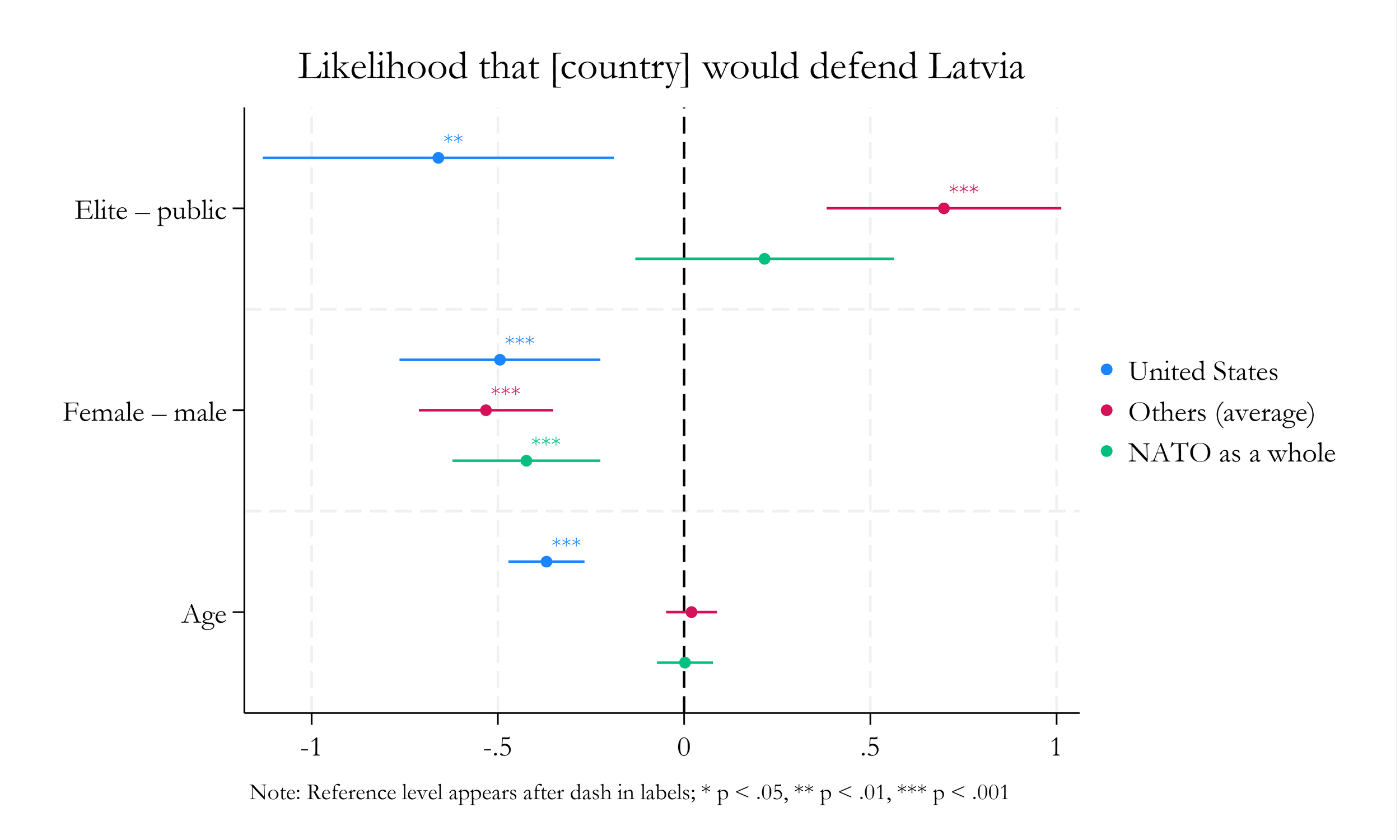Elite–Public Gaps in Perceptions of NATO’s Collective Defense Credibility: Evidence from a Survey of British Parliamentarians and Citizens
Study description
In one of our previous research reports, we found that across NATO countries, the perceptions of the credibility of the U.S. commitments to defend NATO’s eastern flank have decreased dramatically in less than two months since Trump assumed office in January 2025. However, these studies have so far been conducted exclusively on samples of the general population. Since security and defense policy is traditionally understood as mainly an elite domain, our aim in this latest study has been to investigate whether there are elite-public gaps in the perceptions of the credibility of NATO’s collective defense commitments. To test this empirically, we designed a paired survey that we fielded simultaneously to an elite sample of members of the British parliament and a representative sample of the British population.
Data collection procedure
We surveyed 100 sitting members of the British parliament via Survation’s parliamentary omnibus poll and a representative sample of the general public in the United Kingdom via the IPSOS polling company in April/May 2025. In the online survey, we first presented the participants with a short description of NATO as a military alliance and its collective defense commitments under Article V. In turn, we asked them to imagine a hypothetical war between Russia and Latvia. The participants subsequently indicated how likely or unlikely (on a 9-point Likert scale) the following actors were to send their armed forces to defend Latvia in this scenario: the United States, the United Kingdom, France, Germany, Poland, Canada, and NATO as a whole.
Sample size
U.K. public: 1,012
U.K. parliamentarians: 100
Data analysis
Below, find categorical plots showing percentages of respondents who selected the given response in the survey. To allow easier interpretation, we aggregated the responses made on a nine-point scale into three categories (Opposed, Neither opposed nor supportive, Supportive; or Unlikely, Neither likely nor unlikely, Likely)
Results
I. Elite-Public Gaps in Attitudes to Collective Defense
Summary of results:
General Credibility of NATO Commitments: U.K. parliamentarians were slightly more likely than the public to view members’ commitment to NATO collective defense as credible. Ninetytwo percent of parliamentarians believed it was likely that NATO members would come to each other’s defense in the event of an attack, compared to 82% of the public.
Countervailing Perceptions of Individual Allies: There was a countervailing trend in how U.K. elites and the public assessed the likelihood of individual countries defending the Baltics. Parliamentarians viewed the U.S. as slightly less likely than the public to defend Latvia—a difference driven largely by a higher proportion of elites selecting “unlikely” rather than “neither” or “likely.” In contrast, they viewed other NATO members (the U.K., France, Germany, Poland, and Canada) as more likely than the public to defend Latvia. The perceived likelihood of NATO as a whole defending Latvia was largely comparable across elite and public respondents.
Willingness to Defend Latvia: U.K. parliamentarians were considerably more supportive of deploying British armed forces to defend Latvia, with 90% expressing support compared to 71% of the public.
Perceptions of U.S. Reliability: U.K. elites and the public were similarly divided on the overall reliability of the U.S. commitment to NATO. However, a greater share of the public expressed uncertainty, with 16% selecting the “neither” option compared to just 2% of parliamentarians.
(1) NATO’s General Credibility: NATO is a military alliance. Article V of the NATO agreement states that an attack on one NATO member is considered an attack on all NATO members. Thinking about the world today, how likely or unlikely is it that NATO members would come together to defend each other in the event of an attack?
(2) Likelihood of [Country] Defending the Baltics: Latvia is a NATO member state located in Eastern Europe. Imagine that Russia and Latvia are at war. If this occurred, how likely or unlikely do you think it is that the following would send their armed forces to defend Latvia?
(3) Support for Collective Defense: If Russia and Latvia were at war, would you be supportive of or opposed to your country sending their armed forces to defend Latvia?
(4) U.S. Commitment to the Alliance: How reliable or unreliable is the United States’ commitment to NATO in general?
II. Elite-Public Gaps in Attitudes to Defending Taiwan
Summary of results:
U.K. parliamentarians and the public showed broadly similar views on the likelihood of the U.S. defending Taiwan, with just over half in both groups believing the U.S. would do so. However, elites were somewhat more supportive of deploying British armed forces to defend Taiwan (55%) than members of the public (47%).
(5) Likelihood of the U.S. Defending Taiwan: Taiwan is a country located in East Asia. Imagine that China and Taiwan are at war. If this occurred, how likely or unlikely do you think it is that the United States would send its armed forces to defend Taiwan?
(6) Support for Defending Taiwan: If China and Taiwan were at war, would you be supportive of or opposed to your country sending its armed forces to defend Taiwan?
III. Regression Analysis of the Likelihood of Individual Actors Defending Latvia
Summary of results:
This section provides statistical evidence of diverging trends in how U.K. parliamentarians and the public assess the likelihood that various actors would defend the Baltics.
We ran three OLS regression models, each with a dependent variable capturing the perceived likelihood of different actors defending Latvia (9-point scale from “extremely unlikely” to “extremely likely”): (1) the United States, (2) the average likelihood across other surveyed countries (i.e., the United Kingdom, France, Germany, Poland, and Canada), and (3) NATO as a whole. All models include controls for respondent type (public vs. elite), gender, and age. The results are presented in the coefficient plot below and summarized in Table 1.
We found that U.K. parlamentarians rated the likelihood of the U.S. defending Latvia as significantly lower than members of the U.K. public did. Conversely, parliamentarians rated the likelihood of other NATO members defending Latvia as significantly higher than the public did. Finally, there was no significant difference between parliamentarians and the public in their ratings of NATO as a whole defending Latvia.
Note: OLS regression results. Models are differentiated by colors. Sample size for each model (N) = 1,112.
Updated on July 7, 2025
Written by: Michal Smetana, Lauren Sukin, Marek Vranka and Ondřej Rosendorf
Funded by the European Union (ERC, MICROCODE, 101160767). Views and opinions expressed are however those of the author(s) only and do not necessarily reflect those of the European Union or the European Research Council. Neither the European Union nor the granting authority can be held responsible for them.











